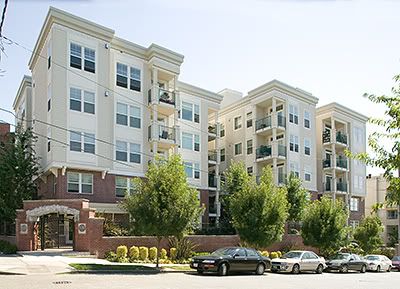We frequently send out letters and notices to clients as a way of providing value after a sale or purchase of a home. One of the areas that began as a bit of a challenge and was a little more interesting for me to delve into was giving tips to owners of condos since a condo owner has ownership of their unit, but not full ownership of the exterior of their home. Initially, before getting into real estate, I had personally only owned single family homes but I’ve now been an owner of a condo and I’ve read enough Public Offering Statements and Condo CC&R’s (covenants, conditions & restrictions) now that I’m pretty quick to be able to find the meaty parts that my clients need to scrutinize more than other parts. Plus, my business partner was also a townhome condo owner for many years so he has lots of experience in dealing with association issues and Treasurer reports (he’s a former accountant and financial analyst). Below is a copy of a list of items that we came up with that can help condo owners learn a little more about what their association should be doing on behalf of the owners or at least in conjunction with the assistance of the property management of the building.


Maintenance and repair are essential to protect your investment in your home. And proper maintenance can help you obtain top dollar down the road when you are ready to sell. Listed below are some tips to keep in mind to when reading meeting minute reports or attending association meetings to make sure your condominium home stays in good repair:
* Has an “envelope study” been done on your building? Typically, an association will hire a contracting or engineering firm to inspect the building systems and exterior to assess maintenance needs and to determine the life expectancy of materials on a building. These reports also help the association to prepare long term budgeting of dues and can help limit the need for large assessments due to maintenance “surprises” down the road.
* How is the association doing on keeping up the paint or other exterior materials of your home? Peeling and chipped paint allows water damage of the unprotected wood. Other, newer types of materials should be examined or spot checked to be certain that water isn’t infiltrating the building envelope. Many of the major condo lawsuits of the 1990’s were from damage in the walls that came from faulty installations or workmanship that caused leaking from the roof into exterior walls, or leaking window frames.
* Roof and gutters or other alternate drainage systems should be in good shape. Does the association have the gutters cleaned at least once a year? This prevents water from spilling over and damaging the fascia and siding. Regular maintenance to flat roofs, common on many condo buildings, is important for keeping bigger issues at bay.* Keep an eye on if the common areas or well-groomed, watered, and fertilized. A well-landscaped and maintained landscape not only provides you with personal enjoyment, but it makes your home more marketable when it is time to sell.* Periodically do a “walk-through” of your home, inside and out, to catch any damage or deterioration early. Be sure to send written notices to your association if you see anything that falls under the common area maintenance.
Protecting and maintaining your home will give you many years of comfort and enjoyment and ensure top dollar when you decide to make a move.

When you are part of an association you can’t just leave it to the association to do all the work. Most people that serve as board members of an association are volunteers and they look to their fellow neighbors to help them manage the property and to be involved in the processes and decisions associated with this kind of home ownership. One thing I’ve noticed a lot in those Q&A articles in the Seattle Times, when associations come up (and they do fairly often) it’s usually only when someone has a complaint or doesn’t like a decision that was made within their HOA. The first thought that usually comes to mind for me when I read these complaints is “I wonder if they ever went to any HOA meetings?” Chances are, probably not. For most folks it doesn’t register in their daily lives until a building problem comes up, an assessment is put in place (usually very pricey), or a neighbor has become hard to deal with. Get involved and you’ll become a better advocate for yourself, your property and your investment.


